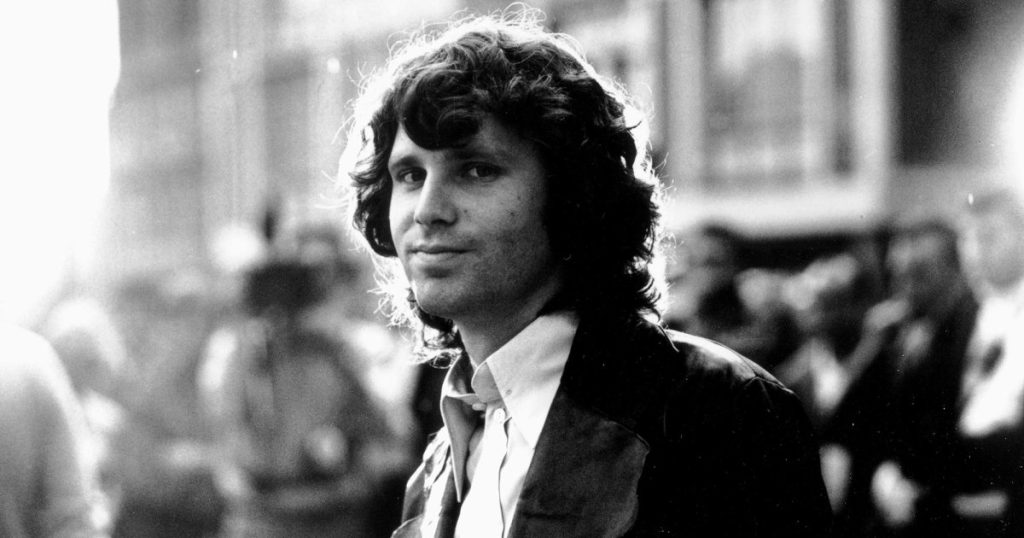The Enduring Enigma of Jim Morrison’s Demise: A Narrative of Excess, Escape, and Conspiracy
Jim Morrison, the enigmatic frontman of The Doors, remains a captivating figure in rock history, even decades after his untimely death in a Paris apartment bathtub in 1971. While the official cause of death was listed as heart failure, the circumstances surrounding his passing, coupled with the lack of an autopsy, fueled persistent speculation and conspiracy theories that continue to intrigue fans and biographers alike. A recent docuseries, "Before the End: Searching for Jim Morrison," sheds new light on the final chapter of the rock icon’s life, featuring a rare interview with his brother, Andy Morrison, who offers a candid perspective on the factors that contributed to his brother’s demise.
Andy Morrison attributes his brother’s death to the cumulative effects of his excessive lifestyle. He candidly acknowledges Jim’s struggles with alcohol abuse, compounded by declining health and occasional drug use. This frank assessment paints a picture of a man grappling with the consequences of his own indulgences, a narrative that aligns with the widely known image of Morrison as a rebellious and self-destructive artist. While not dismissing the possibility of underlying health issues, Andy’s testimony suggests that the relentless pursuit of a life lived on the edge ultimately exacted its toll. This perspective, while perhaps less sensational than the elaborate conspiracy theories that have circulated for years, offers a grounded explanation for the tragic end of a brilliant but troubled life.
The allure of the "Jim Morrison faked his own death" conspiracy endures, finding fertile ground among those who believe the iconic rocker staged his demise to escape the pressures of fame and the demands of leading a world-renowned band. This theory posits that Morrison, weary of the spotlight and seeking a fresh start, orchestrated his disappearance to live a life of anonymity away from the public eye. While acknowledging the enduring appeal of this narrative, the docuseries also explores Morrison’s genuine desire for a respite from the relentless pace of his musical career. His departure for Paris, following the completion of The Doors’ album "L.A. Woman," was, in part, a conscious effort to step back from the band and rediscover his passion for writing.
Andy Morrison suggests that while his brother may have felt a need to distance himself from The Doors, a complete break was unlikely. He believed Jim needed a period of reflection and creative rejuvenation, a chance to explore his artistic impulses beyond the confines of the band. This perspective aligns with the accounts of those who knew Morrison, highlighting his multifaceted personality and his deep-seated desire to express himself through various creative outlets, including poetry and filmmaking. The Paris sojourn, therefore, can be interpreted not as an escape from music altogether, but rather as an attempt to reconnect with the core of his artistic identity.
Robby Krieger, The Doors’ guitarist, vehemently dismisses the notion of Morrison faking his death. He points to Jim’s inherent inability to stay away from the stage, even during his self-imposed exile in Paris. Krieger recounts anecdotes of Morrison joining impromptu jam sessions with local bands, demonstrating his insatiable need to perform. This inherent musical drive, Krieger argues, would have made it impossible for Morrison to truly abandon his artistic calling. He posits that if Morrison were still alive, he would undoubtedly be performing somewhere, unable to resist the allure of the stage. This perspective, grounded in Krieger’s firsthand knowledge of Morrison’s personality, offers a compelling counterargument to the conspiracy theories.
Krieger’s frustration with fellow Doors keyboardist Ray Manzarek’s occasional perpetuation of the "Jim is alive" myth further underscores the divide between those who accept Morrison’s death and those who cling to the hope of his miraculous reappearance. Manzarek’s ambiguous statements, hinting at the possibility of Morrison’s survival, are seen by Krieger as disingenuous and exploitative. He views them as an attempt to capitalize on the enduring fascination with Morrison’s mystique, fueling the flames of speculation rather than acknowledging the reality of his loss. This internal conflict within the band highlights the complex and often contradictory narratives that surround Morrison’s legacy.
The enduring fascination with Jim Morrison’s life and death stems from the enigmatic nature of his persona, the unanswered questions surrounding his final days, and the enduring power of his music. "Before the End: Searching for Jim Morrison" offers valuable insights into the final chapter of his life, presenting a balanced perspective that acknowledges both the excesses that contributed to his demise and the artistic yearnings that drove him. While the conspiracy theories may continue to circulate, the docuseries provides a grounded and ultimately humanizing portrait of a complex artist who burned brightly but ultimately succumbed to the pressures of his own creation. The legacy of Jim Morrison continues to resonate with generations of music fans, reminding us of the enduring power of rock and roll and the tragic fragility of genius.


